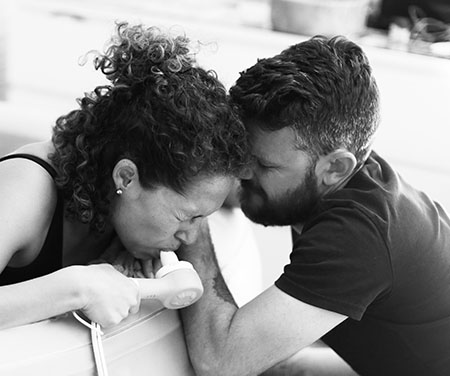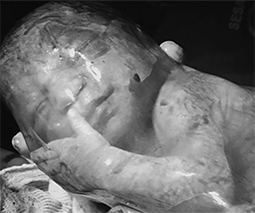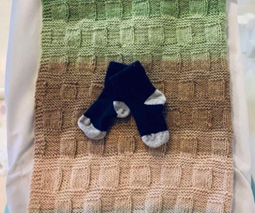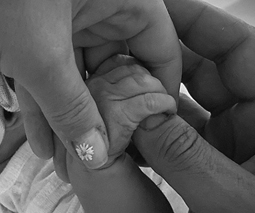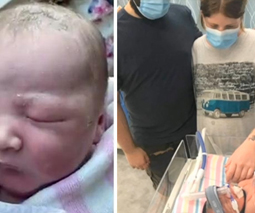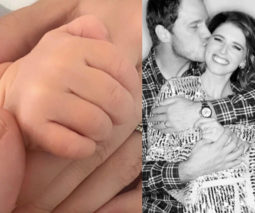Everything you need to know about premature babies
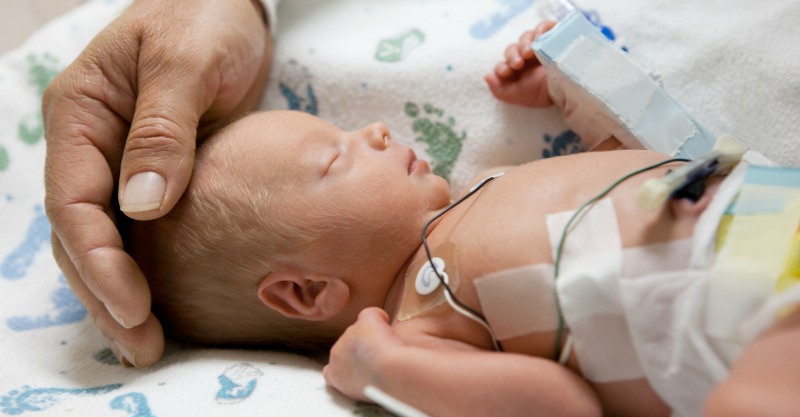
One in eight babies in Australia every year are born prematurely (before a mother reaches full term in her pregnancy). But what does this actually mean for parents and their too small bub?
What is premature?
A full term pregnancy is anything from 37 to 42 weeks which is when the baby should be developed enough to be born. Babies born before 37 weeks are therefore considered premature or preterm and are classed in three different categories by the World Health Organisation:
- Mildly preterm – delivered at 32-37 weeks (around 80% of all premature babies)
- Moderately preterm – delivered at 28-31 weeks (around 11% of all premature babies)
- Extremely preterm – delivered before 28 weeks (around 9% of all premature babies)
In Australia if a baby is born before 20 weeks or weighs less than 400g and doesn’t survive, it’s generally considered a miscarriage instead of a premature baby.
What it means for their health
Most babies who are born early go on to be healthy, thriving children with no issues whatsoever; however, in some cases (particularly when they’re extremely preterm) the babies sadly don’t make it. The reason for this is that their organs and body aren’t developed enough to function properly outside of the womb.
24 weeks gestation is generally considered to be the ‘safe’ age that a premature baby can be delivered, however around one third of premmies of this age will still develop a significant disability such as cerebral palsy, intellectual disability, deafness or blindness. Therefore, the closer a baby is born to their due date is the only way to lower the health risks.
Some of the more common medical problems that can occur with premature babies are:
- Lung disease or breathing difficulties (due to immature lungs)
- Feeding issues (caused by an inability to suck and swallow)
- Inability to control body temperature
- Sleep apnoea (when breathing stops for a period of time)
- Bradycardia (slowing of the heart rate)
- Jaundice (skin turns yellowish due to immature liver)
It is this reason why premmies are evaluated by an ‘adjusted age’ – which is their chronological age minus the difference between their birth and due date. Studies have found that motor skill milestones for premmies are achieved at the same time as full-term babies (using adjusted ages), and the majority of premature children will catch up size wise within the first year.

Having a premature baby can be scary but many do go on to thrive normally
Why are babies born premature?
The reasons behind what causes premature births are usually unknown, however there are several known maternal health and lifestyle factors which can increase the risks. These are:
- High blood pressure
- Diabetes
- Severe illness
- Twins or multiple babies
- Previous preterm births
- A severe urine infection
- Smoking, alcohol and other drugs
- Extreme stress
- Heavy physical work
- IVF and assisted reproduction
- A bad fall or car accident
Unfortunately there is no proven way to prevent or predict a baby being born prematurely, however if a mother does go into labour early sometimes the birth can be delayed with hospital treatments.
Elective preterm births
Caring for a premmie
If your baby is very premature they will be required to spend time in a Neonatal Intensive Care Unit (NICU) to help them thrive and adjust to life on the outside. Medical help or treatment for premature babies can include: oxygen to help them breathe, feeding tubes if they can’t nurse, heat lamps to regulate their body temperature and phototherapy to help with jaundice.
It can be frustrating for new parents to not be able to bring their baby home straight away, or hold or nurse them properly, however as premature babies are at higher risk of infections and other health issues, it is important that they spend time in the NICU. And if a premmie is able to feed, then breast milk is considered ideal as they often suffer gastrointestinal problems, however formula is also a good substitute.
If a premmie baby can feed by themselves (without tubes) and move into a crib (regulating their own body temperature) are signs they are improving and ready to go home. If it seems like they’re not growing fast enough don’t worry, because after a year or two your baby will likely show no signs that they were once premature.
As always though, if you are concerned with your baby’s development please speak to your doctor.
Did you have a premature birth?
